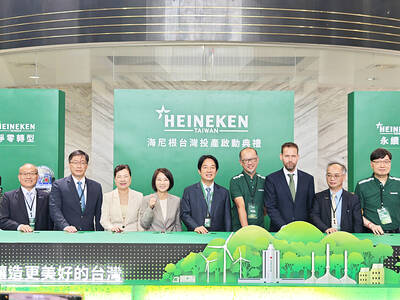Facebook Inc has said it would spend US$1 billion on social media creators through the end of next year in a fight for top talent. The announcement came after TikTok became the first rival mobile app to hit 3 billion global downloads.
Facebook’s investments would include bonus programs to pay creators who hit certain milestones on its apps, including image-sharing service Instagram, and fund users to produce content, the company said.
The social media giant is opening its wallet to woo creators with major fan followings from platforms like Alphabet Inc’s YouTube and short video app TikTok.
Multiple major technology platforms are on the offensive to attract and keep social media personalities with new payments and services.
TikTok has committed to spending US$2 billion to support creators over three years.
Snap Inc’s Snapchat has been paying creators a total of US$1 million per day to post popular short-form videos on its service and says it still distributes millions of dollars per month to support creators through its Spotlight program.
“With the 3 billion install milestone, TikTok is the fifth non-game app to join a tier that’s historically been the exclusive domain of Facebook,” mobile insights firm Sensor Tower said in a report on Tuesday.
Facebook said its bonuses would be by invitation only.
Video creators and online gamers would receive a monthly bonus if they hit milestones like broadcasting a certain number of hours to earn Stars, a form of digital tipping that fans can use to pay creators.

purpose: Tesla’s CEO sought to meet senior Chinese officials to discuss the rollout of its ‘full self-driving’ software in China and approval to transfer data they had collected Tesla Inc CEO Elon Musk arrived in Beijing yesterday on an unannounced visit, where he is expected to meet senior officials to discuss the rollout of "full self-driving" (FSD) software and permission to transfer data overseas, according to a person with knowledge of the matter. Chinese state media reported that he met Premier Li Qiang (李強) in Beijing, during which Li told Musk that Tesla's development in China could be regarded as a successful example of US-China economic and trade cooperation. Musk confirmed his meeting with the premier yesterday with a post on social media platform X. "Honored to meet with Premier Li

Dutch brewing company Heineken NV on Friday announced an investment of NT$13.5 billion (US$414.62 million) over the next five years in Taiwan. The first multinational brewing company to operate in Taiwan, Heineken made the statement at a ceremony held at its brewery in Pingtung County. It also outlined its efforts to make the brewery “net zero” by 2030. Heineken has been in the Taiwanese market for 20 years, Heineken Taiwan managing director Jeff Wu (吳建甫) said. With strong support from local consumers, the Dutch brewery decided to transition from sales to manufacturing in the country, Wu said. Heineken assumed majority ownership and management rights

coverage expansion: The industrial PC maker has proposed to acquire 3.938 million Aures shares to strengthen its global smart retail presence Leading industrial PC maker Advantech Co (研華) plans to acquire Aures Technologies SA, a French company known for its point-of-sale (POS) and kiosk equipment, to expand its global coverage in smart retail products and services. Advantech proposed to acquire 3.938 million Aures shares from the French firm’s major shareholder and through a public tender offer at up to 6.7 euros per share, the PC maker said in a statement after announcing the deal at the Taiwan Stock Exchange late on Friday. The company aims to acquire up to 100 percent equity of Aures, a well-known brand in the western market with a

Microsoft Corp yesterday said that it would create Thailand’s first data center region to boost cloud and artificial intelligence (AI) infrastructure, promising AI training to more than 100,000 people to develop tech. Bangkok is a key economic player in Southeast Asia, but it has lagged behind Indonesia and Singapore when it comes to the tech industry. Thailand has an “incredible opportunity to build a digital-first, AI-powered future,” Microsoft chairman and chief executive officer Satya Nadella said at an event in Bangkok. Data center regions are physical locations that store computing infrastructure, allowing secure and reliable access to cloud platforms. The global embrace of AI